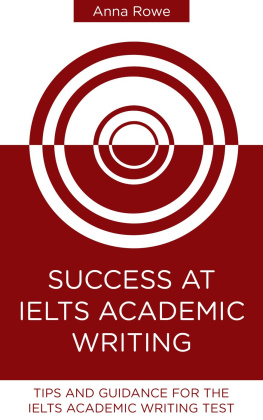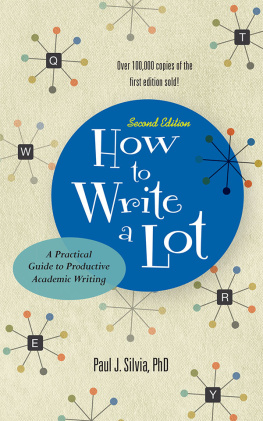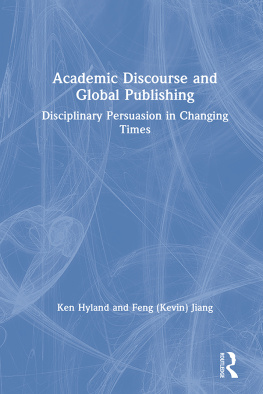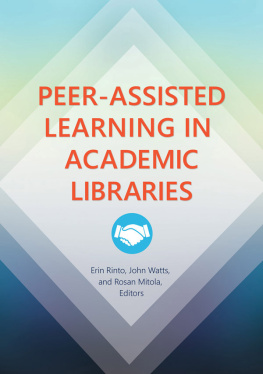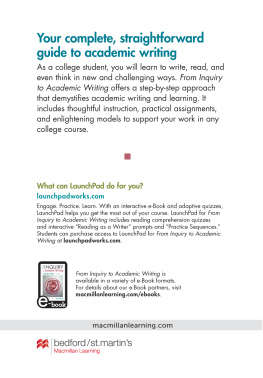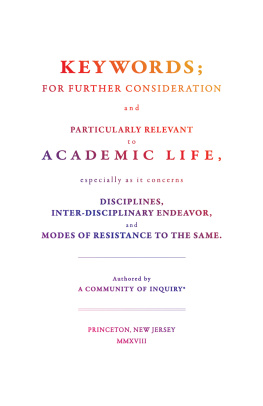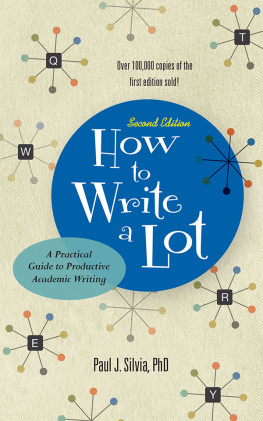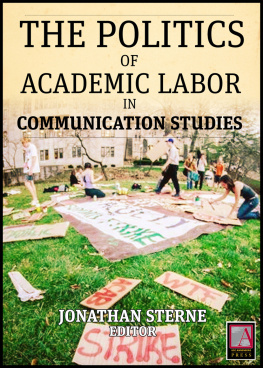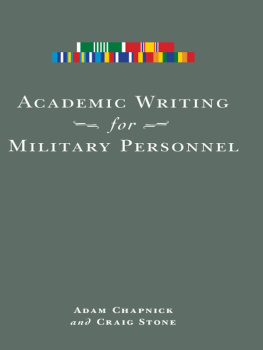
Writing and Unrecognized Academic Labor
Writing and Unrecognized Academic Labor acknowledges that much of the work we do to sustain the academy remains without recognition. It demonstrates that it is not only published work that influences development and innovation in scholarship.
The book rethinks the publish or perish system to show that good, unrecognized work is a vital part of scaffolding the growth of the academy and individual academic careers. It takes openness and transparency as a blueprint to outline plans for not only producing but also reimagining key markers of academic life, such as dissertations without anxieties of influence, conferences without directors, journals without gatekeepers, large-sample peer review, and teaching and learning beyond the university discourse.
A sustainable community model of academic life should have belonged to each of us from the start. Author James Salvo shows us that nothing will be lost when everything is given away. Thus, we ought to share fearlessly. This book is suitable for all graduate students and researchers in qualitative inquiry and across disciplines who seek a new model for the value of their work.
James M. Salvo is a lecturer in the College of Education at Wayne State University, USA.
Developing Traditions in Qualitative Inquiry
Series Editors: Jasmine Brooke Ulmer and James Salvo
Wayne State University
The Developing Traditions in Qualitative Inquiry series invites scholars to share novel and innovative work in accessible ways, ways such that others might discover their own paths, too. In acknowledging who and what have respectively influenced our work along the way, this series encourages thoughtful engagements with approaches to inquiry ones that are situated within ongoing scholarly conversations. Neither stuck in tradition nor unaware of it, volumes make new scholarly contributions to qualitative inquiry that attend to whats shared across disciplines and methodological approaches. By design, qualitative inquiry is a tradition of innovation in and of itself, one aimed at the target of justice.
From multiple perspectives and positionalities, concise volumes in this series (20,000 to 50,000 words) strengthen and grow the qualitative community by developing inquiry traditions as they should be developed: inclusively, diversely, and together.
For more information about the series or proposal guidelines, please write the Series Editors at .
Other volumes in this series include:
Shared and Collaborative Practice in Qualitative Inquiry
Tiny Revolutions
Jasmine Brooke Ulmer
Writing and Unrecognized Academic Labor
The Rejected Manuscript
James M. Salvo
For a full list of titles in this series, please visit www.routledge.com/Developing-Traditions-in-Qualitative-Inquiry/book-series/DTQI
First published 2021
by Routledge
2 Park Square, Milton Park, Abingdon, Oxon OX14 4RN
and by Routledge
52 Vanderbilt Avenue, New York, NY 10017
Routledge is an imprint of the Taylor & Francis Group, an informa business
2021 James Salvo
The right of James Salvo to be identified as the author of this work has been asserted in accordance with sections 77 and 78 of the Copyright, Designs and Patents Act 1988.
All rights reserved. No part of this book may be reprinted or reproduced or utilised in any form or by any electronic, mechanical, or other means, now known or hereafter invented, including photocopying and recording, or in any information storage or retrieval system, without permission in writing from the publishers.
Trademark notice: Product or corporate names may be trademarks or registered trademarks, and are used only for identification and explanation without intent to infringe.
British Library Cataloguing-in-Publication Data
A catalogue record for this book is available from the British Library
Library of Congress Cataloging-in-Publication Data
A catalog record for this book has been requested
ISBN: 978-0-367-35582-1 (hbk)
ISBN: 978-0-429-34045-1 (ebk)
Typeset in Times New Roman
by Apex CoVantage, LLC
To Boo Boo, Lover of Wildflowers
Back in the early 1990s when I was minoring in womens studies no major was available, so I redeclared it to be English we read a particularly difficult book, at that time new, by Judith Butler. It introduced me to both feminist theory and poststructural philosophy. Before then, I had only considered myself to be a Marxist. I remember talking to my friends Cass and Jerry it was Cass, by the way, who encouraged me to go into my minor about whether wed ever see any changes in our lifetime regarding all the good stuff we read in Gender Trouble. I recall very clearly that I was pessimistic. Today, Im very glad to have been proved wrong.
If one remembers the 1990s, one knows that weve nicely come a long way. True, not all the way, but far. If one doesnt remember the 1990s, maybe watch the show Friends, try not to cringe as a feminist, and realize that all that was considered to be, at the time, okay. In a way, as difficult as Gender Trouble had been to understand, we might say that the discussion in small university circles discussions like those that took place between Cass, Jerry, and me moved beyond the university discourse and made things better in the world. As educators, I dont think were taking too much credit for ourselves if we think such things in general. Education, we know, makes a difference.
But if you think a little further back along the chain of causality, you know that Gender Trouble wouldnt be possible were it not for William Germano, who was the publishing director at Routledge. It was under Germano that Gender Trouble was published. Under Germano, we also get other feminist and philosophical classics that contributed to the discussion. Unpacking my library and handling I still think this should be tactile and not tactical some classics from my bookshelf, I see that many of my favorite books had been from Germano-era Routledge. Look, heres The Spivak Reader, and oh, Diana Fusss Essentially Speaking. And here, too, is something from Cornel West.
At any rate, if Judith Butler may have started a conversation that changed the world for the better, and you dont have any of that without Germanos support, yet many people are unfamiliar with his name because those books dont bear his signature, then we really ought to recognize his unrecognized academic work. Thinking toward our qualitative corner, we dont have many important books that we have without Mitch Allen. Today, because shes almost single-handedly continuing the tradition, we dont have the important new works that we do without Hannah Shakespeare at Routledge.
* * *
And now because Im having a bit of uncontrollable nostalgia about my early days of study, lets blow off some dust and have a peek inside some of those books I just mentioned. I like to read. Read, read, read, were told by Bettie St.Pierre. Reading is important, but often unrecognized academic work. They really cant measure this, so I think we sometimes skip this step before we sit down to write. Id add that we also need to learn, learn, learn. Lenin is said to have urged the latter.
At any rate, because Im a Lacanian, I guess Ive always been interested in the idea of recognition. Its important to his formulation of subjectivity, and hes in at least partial debt to Hegel. Here are some passages that include the term


